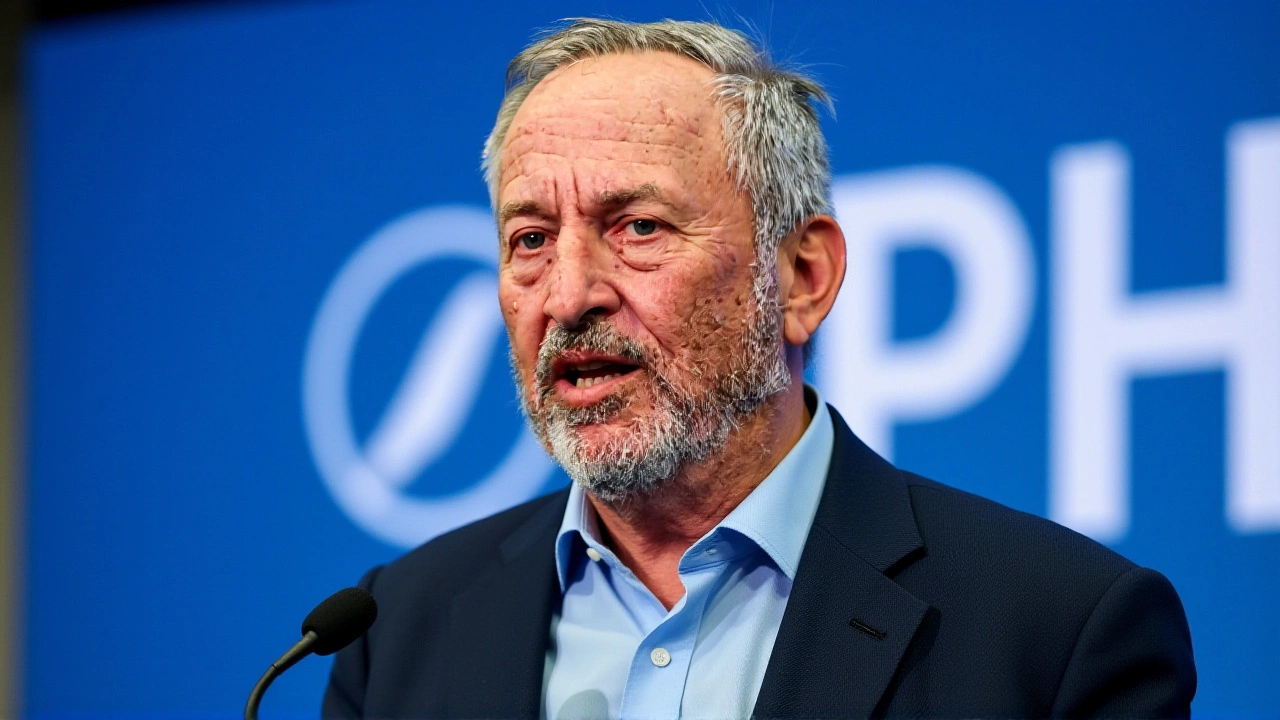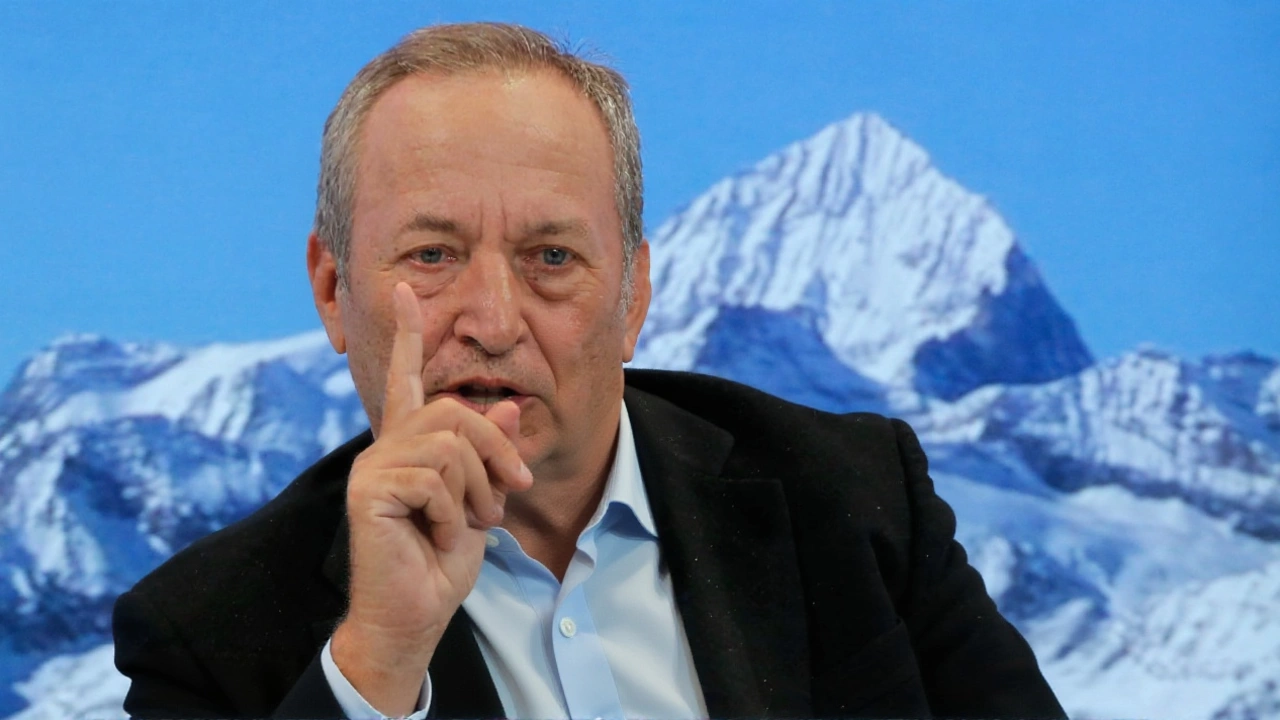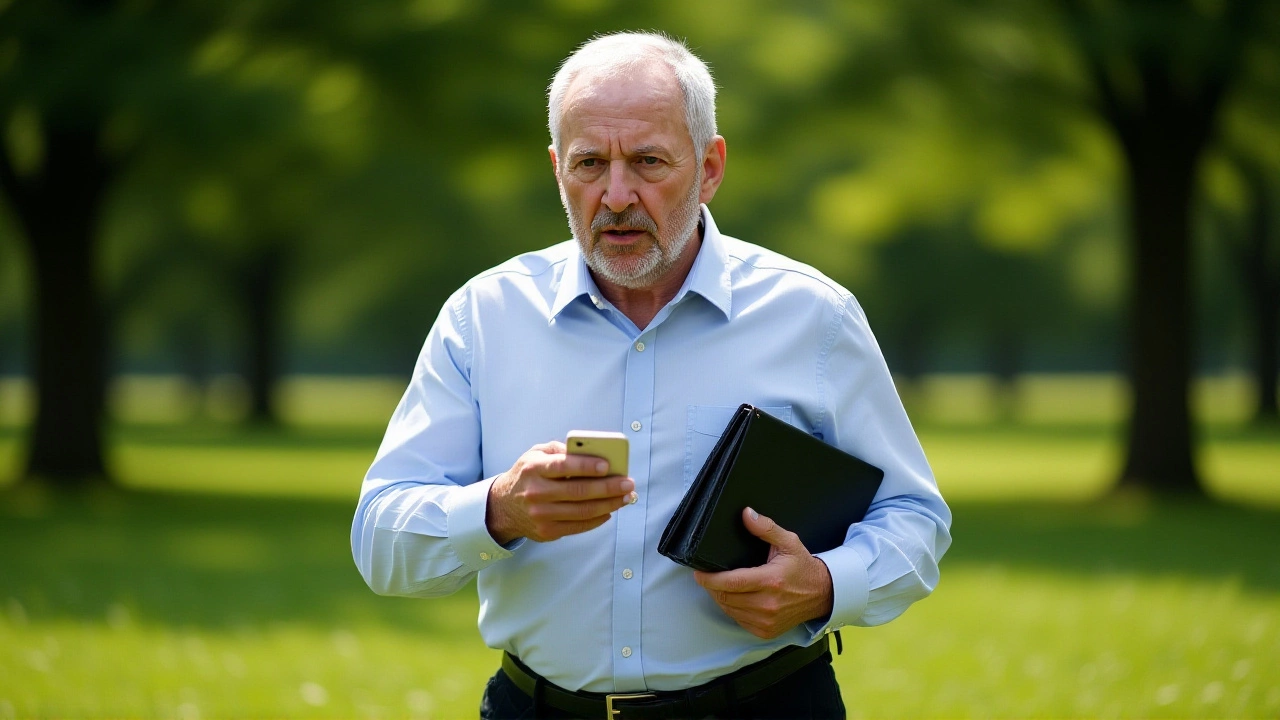
When Larry Summers announced he was stepping away from all public roles, it wasn’t because of a policy dispute or a market crash. It was because of emails — dozens of them — linking him to Jeffrey Epstein, a man whose name now conjures images of power, privilege, and profound moral failure. The announcement, made public on November 20, 2025, came just two days after Politico published its scathing piece titled "How Could Larry Summers Be So Stupid?", a headline that cut deeper than any academic critique ever could. Summers, once the most influential economist in Washington, now finds himself at the center of a reckoning that extends far beyond personal judgment — into the soul of institutions that once celebrated him.
What the Emails Revealed
The trove of emails, obtained by WBUR and republished by Ideastream.org, didn’t show Summers engaging in illegal acts. But they revealed something arguably more damaging: casual intimacy with a predator. The communications, spanning years, included invitations to private gatherings, discussions about funding academic research, and even personal updates exchanged between the two men. One email, cited by WBUR senior political reporter Anthony Brooks during a broadcast with host Lisa Mullins, showed Summers thanking Epstein for "his continued support of Harvard’s economic initiatives" — a phrase that now sounds chillingly naive. There were no explicit mentions of minors, no admissions of guilt. But the tone? That was the problem. It was the tone of a man who treated Epstein as a peer — not a convicted sex trafficker who’d already served time for soliciting prostitution from a 14-year-old girl in 2008.
Harvard’s Complicated Legacy
Harvard University has long struggled with its relationship to Epstein. Between 1998 and 2008, Epstein donated roughly $6.5 million to the university — money that funded everything from neuroscience labs to the Program on Evolutionary Dynamics. Summers, who served as Harvard’s president from July 1, 2001 to June 30, 2006, was at the helm during much of that giving. He later returned as a Charles W. Eliot University Professor, a title that carries immense prestige. Now, faculty members are demanding answers. "We didn’t just accept money," said one anonymous professor in an internal memo leaked to The Harvard Crimson. "We gave him access. We gave him credibility. And now we’re paying for it." The university has yet to issue a formal statement. But internal sources say administrators are quietly reviewing all Epstein-linked grants and considering whether to rename buildings or redirect funds. The irony? Epstein’s donations were framed as philanthropy. In hindsight, they look like laundering influence — and Summers, as both president and professor, was one of the gatekeepers.

Why This Matters Beyond One Man
This isn’t just about Larry Summers. It’s about how elite institutions protect their own. When Epstein died in Manhattan’s Metropolitan Correctional Center on August 10, 2019, the world thought the story was over. It wasn’t. The unsealed documents that followed exposed a web of powerful men — politicians, bankers, academics — who had dinner with him, flew on his private jet, and ignored the rumors. Summers was never charged. But his silence, his continued association, his failure to publicly condemn Epstein even after the 2008 conviction — that’s what’s now under scrutiny.
Consider the precedent: In 2020, MIT severed ties with its Media Lab director after similar emails surfaced. The lab’s head resigned within 48 hours. Harvard, by contrast, gave Summers a professorship — and a platform — even after Epstein’s crimes became undeniable. That’s not just a lapse in judgment. It’s a systemic failure.
What’s Next for Summers and Harvard?
Summers has not issued a public apology. He hasn’t explained why he maintained contact with Epstein after 2008 — after Epstein’s conviction, after the world knew what he was. He’s simply vanished from panels, podcasts, and op-ed pages. His role as a non-resident senior fellow at the Brookings Institution is reportedly under review. His publisher has paused his upcoming book on global inequality.
At Harvard, faculty committees are now drafting proposals to establish an independent ethics review board — one that would vet all future donors with criminal histories. It’s a small step. But after decades of turning a blind eye, it’s a start. Meanwhile, students are organizing. A petition demanding Summers’ removal from the faculty has gathered over 12,000 signatures. The administration says it’s "considering all options." The real question isn’t whether Summers made a mistake. It’s whether Harvard ever truly believed it was wrong.

Why This Resonates Now
This scandal hits differently than others. It’s not about corruption or embezzlement. It’s about moral blindness. Summers was one of the most brilliant economists of his generation — a man who helped shape global financial policy during the 2008 crisis. He’s not a villain. He’s a man who chose convenience over conscience. And that’s what makes it so unsettling. We all know people who made bad calls. But when those people hold power — when they teach the next generation of leaders — their choices echo.
Frequently Asked Questions
How did Larry Summers’ relationship with Epstein begin?
The exact origin of their relationship is unclear, but records show Epstein began donating to Harvard in 1998, shortly after Summers became a tenured professor there. By 2001, when Summers became president, their communications had intensified. Epstein reportedly sought Summers’ advice on economic policy, and Summers, in turn, helped facilitate Epstein’s access to Harvard’s academic circles — a connection that lasted well into the 2010s, long after Epstein’s 2008 conviction.
What impact does this have on Harvard’s reputation?
Harvard’s reputation has taken a significant blow, particularly among students and younger alumni who view the university’s past tolerance of Epstein as emblematic of institutional elitism. The $6.5 million in donations may have funded research, but they also bought legitimacy for a criminal. With faculty now demanding transparency and student-led protests growing, Harvard risks losing its moral authority — especially as peer institutions like MIT have already taken decisive action.
Did Larry Summers ever publicly condemn Jeffrey Epstein?
No. Despite Epstein’s 2008 conviction and the 2019 federal charges that led to his death, Summers never issued a public statement condemning him. Even after the 2020 release of Epstein’s flight logs and donor lists, Summers remained silent. His only public comment since the November 2025 email leak was a brief, unsigned statement to WBUR: "I regret my association with Epstein and am taking steps to distance myself from all public roles." No apology. No explanation.
What role did WBUR play in uncovering this story?
WBUR obtained the email trove through a Freedom of Information Act request filed in early 2025, targeting Harvard’s financial records and internal communications. Senior political reporter Anthony Brooks spent months verifying the authenticity of the messages and cross-referencing them with public timelines. Their reporting, broadcast on NPR affiliate WBUR-FM and published online, was the first to link Summers’ personal communications directly to Epstein — turning speculation into documented fact.
Is this the first time Harvard has faced scrutiny over Epstein?
No. In 2019, shortly after Epstein’s death, The Boston Globe reported that Harvard had accepted $6.5 million from him between 1998 and 2008. The university initially downplayed the donations, calling them "academic funding." But internal memos later revealed administrators were aware of Epstein’s criminal history as early as 2006 — yet continued to welcome him on campus. The 2025 email leak confirms the relationship went far beyond financial transactions.
What’s likely to happen to Summers’ academic positions?
While Summers technically retains his title as Charles W. Eliot University Professor, Harvard’s governing board is expected to review his status by early 2026. Faculty votes could lead to revocation of his teaching privileges or removal from advisory boards. Meanwhile, the Brookings Institution has paused his fellowship pending investigation. Without public appearances or institutional backing, Summers’ influence — once towering — is now in freefall.
 Entertainment
Entertainment